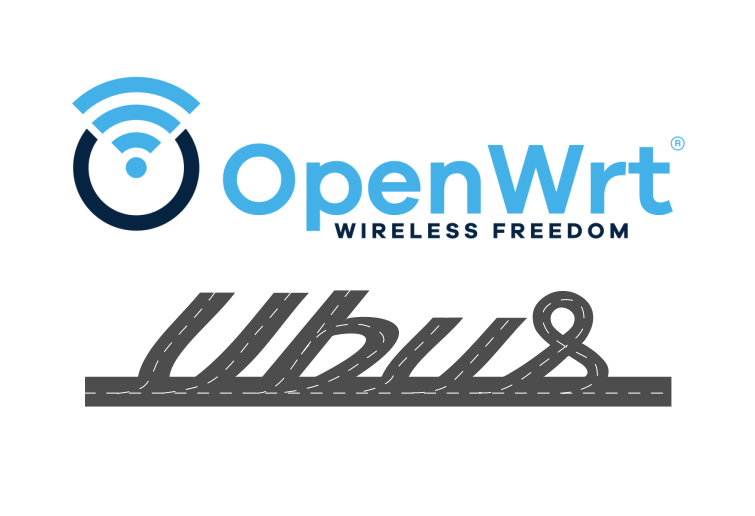
We’re thrilled to share big news! Zilogic Systems Joins prpl Foundation:Powering the Future of Connected Devices.
Since 2007, Zilogic has been crafting cutting-edge embedded software solutions for automotive, wireless networks, and IoT industries. Zilogic Systems is now a proud member of the prpl Foundation, a global community driving open-source innovation for next-generation connected devices. This milestone marks an exciting step in our journey to shape the future of networking!
Read More ➠

Zilogic Systems is proud to participate as a Co-Sponsor at CAEV EXPO 2025, taking place on April 24–25 at KTPO, Bangalore. This premier event serves as a pivotal platform to explore the future of mobility—bringing together innovators, OEMs, Tier-1, technology leaders, and visionaries shaping the next era of the automotive industry.
Read More ➠

We’re thrilled to announce Zilogic Systems' participation in the Automotive Testing Expo 2025, happening at CTC complex, Chennai from April 8–10, 2025 — the leading event showcasing innovations in automotive testing, validation, and quality engineering.
Read More ➠
As we all know, binaries are the final executable form of software after compilation. They are essential for:
-
Booting an operating system
-
Firmware updates
-
Application execution
-
Device configuration.
Without a proper storage and retrieval system, managing these binaries becomes complex and error-prone.
This article introduces the Flattened Image Tree (FIT) for multi-component files, which is a de facto standard used in Linux kernel booting in ARM-based systems.
Read More ➠
OpenWrt is a Linux based Open-source Operating system which are primarily used on wireless routers and mesh devices. For users, OpenWrt means the freedom of full customization, allowing the use of an embedded device in ways the vendor never envisioned. Designed to be lightweight and efficient, OpenWrt is capable to run in range of hardware products, be it low memory Wi-Fi routers, CPE routers and so on.
Read More ➠

OpenWrt is an opensource Linux distribution which enables several Routers and Access Points. It is designed to be a lean router stack, but with a scaleable architecture where,it can be customized and extended with more features. It is possible that we can develop our own custom component and add it to the router stack conveniently.
This is the first part of a mini series dedicated to introduce openwrt bus architecture and adding a shell based custom component to Openwrt.
Read More ➠

In the realm of Linux system software, there is always a constant thirst for improvements. One architecture replaces the other, along the paradigm shift in the resources availability and to cope with the new technologies. With the foreword, there are quite a lot of bus architectures available around Linux based systems. D-Bus is one of the prominent among them. The default bus system in the Ubuntu systems and in many of the other flavors of Linux systems be it both general purpose desktops or embedded platforms. In the light of router world explorations, one of the lightweight bus systems from the popular OS OpenWrt is actually so tiny that it is called microbus, ubus.
Read More ➠
In continuation of the previous article, Raspberry Pi with OpenWrt as Wireless Router, we can explore more of OpenWrt wireless configuration through the command line with its configuration utility called UCI (Unified Configuration Interface) to configure the OpenWrt access point. We can do a basic smoke test of the new router.
Read More ➠
Raspberry Pi is a single-board computer (with an ARM Cortex-A72 64-bit quad-core) made by Raspberry Pi Foundation for educative exploration. It is commonly called R-Pi/rpi for short and used by hobbyists as a mini PC and for developing embedded and IoT applications.
To build a wireless router, we need a wireless router stack, where OpenWrt is the key contender. OpenWrt is an open-source Linux-based operating system meant for networking equipment (routers, access points). And well and good that OpenWrt supports Raspberry Pi as one of the targets.
In this article we will try to run OpenWrt on RPi and transform it into a WiFi router.
Read More ➠

We’re thrilled to have been a part of the ET & Automotive Testing Expo 2025 held at Autocluster exhibition centre, Pune. This is one of the world’s leading international expo for automotive testing, development, and validation technologies.
Read More ➠

We are excited to share our experience at the recent EFY Expo held in Chennai, where we showcased our expertise. This event provided us with a platform to showcase our capabilities in test automation framework development and test automation tools.
Read More ➠
In any software project, defects are inevitable and requires debugging to root cause it, and this eventually leads to a fix. The key lies in understanding the issue, analyzing it, and choosing the right approach to resolve it. Debugging issues may seem overwhelming at first, but with a clear understanding of the problem and the right tools, the process becomes more manageable.
This article explores the debugging sequence for common issues encountered while working with the Linux WiFi stack.
Read More ➠

Zilogic Systems is proud to announce our participation as a Summit Associate at this year’s WiFi Knowledge Summit 2024 in Bangalore.
Read More ➠

Zilogic Systems is proud to participate in the CAEV EXPO 2024 in KTPO, Bengaluru as Co-Sponsor. CAEV EXPO 2024 will serve as a platform to showcase the latest vehicles, in addition to trends, products, solutions, and services in the automotive technology landscape. It will bring together industry stakeholders and thought leaders who will engage in discussions, debates, and deliberations concerning the future of mobility, which revolves around software-defined and electric technologies.
Read More ➠

Zilogic Systems is excited to participate in the 13th Source India Electronics Supply Chain exhibition in Chennai Trade Centre, Chennai. Source India was initiated by Electronic Industries Association of India (ELCINA) in 2009 in Chennai to accelerate development of the Indian electronics supply chain. ELCINA recognizes that a strong supply chain is the backbone of any engineering manufacturing industry. The Indian market offers great opportunity for Electronics industry.